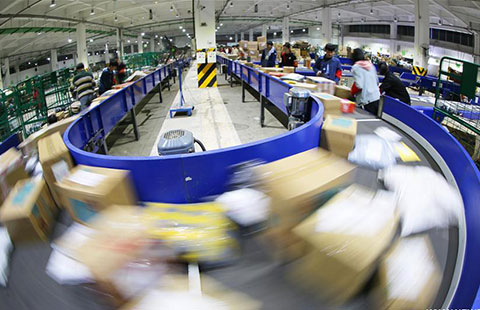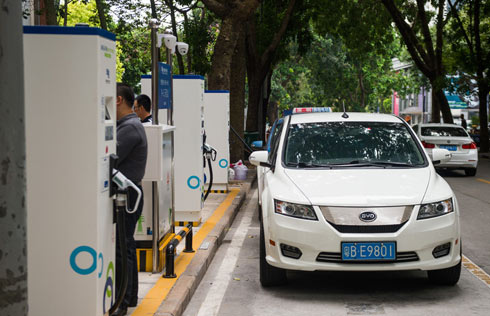China's economy firms on quality growth, better structure
BEIJING - China's economy continued firm growth, with GDP expanding 6.9 percent year-on-year in the first three quarters, and 6.8 percent in the third quarter, the ninth straight quarter for China to see economic expansion of at least 6.7 percent, all adding to evidence the economy is on a steady footing
In Jan-Sept, China's value-added industrial output expanded 6.7 percent year-on-year, faster than the 6 percent increase a year ago.
Industrial companies with annual revenue of more than 20 million yuan ($3 million) reported profits of 5.58 trillion yuan in the first nine months, up 22.8 percent from a year earlier.
Zhang Liqun, researcher with the State Council's Development Research Center, said economic growth was better than expected and more optimized in structure in the first three quarters of the year, with indicators pointing to progress in employment and income distribution and upgrading of consumer spending and the service sector.
"Both the industrial and service sectors are improving, while consumption has become a major engine for growth, suggesting the 'inherent momentum' of the economy has been enhanced," Zhang said.
China created 10.97 million jobs in the first nine months, 300,000 more than the same period last year. The registered unemployment rate in Chinese cities stood at 3.95 percent at the end of the third quarter, the lowest level since 2008.
China's average per capita disposable income grew 7.5 percent year-on-year deducting inflation, 1.2 percentage points higher than that for the same period last year.
The service sector expanded 7.8 percent year-on-year in the first three quarters, outpacing a 3.7 percent increase in the primary industry and 6.3 percent in secondary industry.
Driven by government efforts in economic structural adjustment, the contribution of final consumption to economic growth reached 64.5 percent in the first nine months, up 2.8 percentage points from a year ago.
The high-tech and equipment manufacturing sectors posted stellar growth in the first three quarters, with output up 13.4 percent and 11.6 percent respectively.
Investment also poured into high-tech sectors. For the first nine months, high-tech manufacturing saw investment up by 18.4 percent, up from 11.7 percent during the same period in 2016.
"The progress of the economy in the first three quarters demonstrated the effect of supply-side structural reforms and, at the same time, created favorable conditions for advancing those reforms and laid solid foundation for an optimistic outlook of the final quarter and next year," Zhang said.
The IMF has raised its forecast for the fourth time this year, estimating the Chinese economy would grow at 6.8 percent this year and 6.5 percent next year, both 0.1 percentage point higher than previous predictions.
The China International Capital Corp raised its forecast for China's 2018 real GDP growth to 6.9 percent year-on-year, compared with the current consensus forecast of 6.4 percent, according to a report from the company.
"We are more optimistic on the growth of consumption, property investment, and manufacturing capex [capital expenditure] compared with the consensus view," the report said.
While most Q3 data suggested resilient growth, analysts pointed out some potential areas for concern.
Cao Yuanzheng, chief economist with the Bank of China, said containing financial risks was of vital importance during China's transition from rapid growth to high-quality development with challenges for policy makers including countering debt, shadow banking and asset bubbles.
"A stronger policy focus on financial sector regulation should continue to restrain the growth of shadow banking activities, help mitigate asset risks for the banks, and address some key imbalances in the financial system," rating agency Moody's said in a research note.
It noted that the regulatory authorities should maintain financial stability through greater coordination of monetary policy, including measures for liquidity management, with the macro prudential assessment framework, which will be credit positive for the overall banking sector.



















